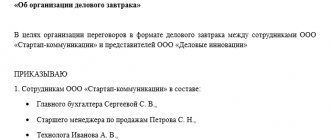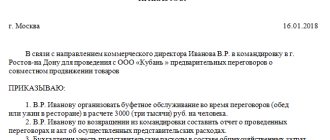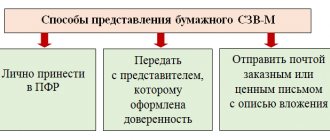USN, OSNO, PSN, Unified Agricultural Tax: for some this is a meaningless set of letters, but for an entrepreneur it is a direct indication of what his tax burden will be. To learn how you can compare taxation systems in order to legally reduce payments to the budget when doing business, read the article “Taxation systems: how to make the right choice?” And for those who still have questions or those who want to get advice from a professional, we can offer free tax advice from 1C specialists:
Get a free consultation
Supporting agricultural producers is one of the priorities of domestic economic policy in many countries of the world. Russia is no exception. The Unified Agricultural Tax, that is, the single agricultural tax, is one of the elements of such a policy. Agricultural producers and fishing industries have the right to apply this preferential treatment.
A significant sector of the processing industry, which can directly (due to the volume and prices of purchases) stimulate the efficiency of agricultural producers, does not have the right to apply the unified agricultural tax. And agricultural producers themselves are subject to a strict restriction - at least 70% of their total income must come from the sale of agricultural products produced by them. In such a situation, many entrepreneurs working in agriculture choose a similar preferential regime - the simplified tax system Income minus expenses, which does not impose such restrictions.
To the list of those who have the right to apply the Unified Agricultural Tax, organizations and individual entrepreneurs that provide services to agricultural producers have been added, and the services must be provided specifically in the field of crop production and livestock farming. This could be preparing fields, harvesting crops, grazing livestock, etc. A complete list of such services is contained in Federal Law No. 216 dated June 23, 2016.
If you find the simplified system profitable and convenient for yourself, then you can prepare an application for switching to the simplified tax system in our service absolutely free of charge:
Create an application for the simplified tax system for free
What are the benefits of using unified agricultural tax?
Let’s compare the tax base and tax rate of systems whose object of taxation is received income:
| Element of the tax system | Unified agricultural tax | BASIC | USN Income | USN Income minus expenses |
| The tax base | Monetary value of income reduced by expenses | Monetary expression of profit, that is, the difference between income and expenses | Monetary expression of income | Monetary value of income reduced by expenses |
| Tax rate | 6% | 20% (in general) | 6% | From 5% to 15% (depending on the size of the differentiated rate accepted in the region) |
As you can see, although the tax rate for the Unified Agricultural Tax and the simplified tax system for Income is the same, the tax base for the simplified tax system for Income is larger, since it does not take into account expenses incurred, which means that the tax payable will be higher.
It was possible to compare the Unified Agricultural Tax in terms of the tax burden only with the simplified tax system Income minus expenses (subject to the minimum possible rate of 5%, which is not applied in all regions). However, now agricultural tax payers, just like those who work for OSNO, are required to pay VAT. You can be exempt from paying this tax if the agricultural producer’s income in 2022 does not exceed 60 million rubles.
How to reflect entertainment expenses in accounting
In accounting, hospitality expenses are not standardized. They can be written off in full as expenses for ordinary activities, using account 26 “General business expenses” or 44 “Commercial expenses”.
DT 26 (44) – KT 60 (71) – services of third-party organizations are taken into account
DT 26 (44) – KT 10 (41, 43) – materials, goods, products were used for representation needs.
DT 19 – KT 60 – VAT allocated
DT 60 – KT 51 – expenses paid by bank transfer
DT 71 – CT 50 (51) the employee was given money on account to pay for entertainment expenses
Who can be a payer of the Unified Agricultural Tax
A full description of taxpayers entitled to the Unified Agricultural Tax is given in Art. 346.2. Tax Code of the Russian Federation. They can only be:
- Organizations and individual entrepreneurs, as well as agricultural consumer cooperatives that produce, process and sell agricultural products. This condition must be considered comprehensively, that is, all these requirements must be taken into account. It’s just that processors and sellers of agricultural products do not have the right to the Unified Agricultural Tax.
- City-forming and village-forming Russian fishery organizations, provided that the number of workers in them, taking into account family members living with them, is at least 50% of the population of this locality. This also includes fishing cooperatives (collective farms). In this case, fishing must be carried out on fishing fleet vessels owned by right of ownership or on the basis of charter agreements.
- Organizations and individual entrepreneurs that provide services to agricultural producers in the field of crop and livestock production.
How to confirm entertainment expenses
The list of documents that need to be used to confirm entertainment expenses is not regulated in the Tax Code of the Russian Federation. According to the Ministry of Finance, in addition to standard primary documents (invoices, acts, advance reports), this requires a report on the event, approved by the head of the company (letter dated April 10, 2014 No. 03-03-RZ/16288).
There is no set form for this report. But to justify the costs, it is necessary to include all the basic information about the meeting: location, list of participants, purpose of the negotiations and the result achieved.
Entertainment expenses paid “by bank transfer” should be included in the tax calculation in the period when the event report was approved. If expenses were made in cash, then you need to write off the expenses on the later of the dates of drawing up two documents: a report on the event or an advance report of the employee who paid the expenses.
Restrictions for Unified Agricultural Tax
Additional restrictions for using this mode look like this:
- Manufacturers of excisable goods (alcohol, tobacco, etc.), as well as those involved in the gambling business, cannot work for the Unified Agricultural Tax.
- In order to be able to switch (for already operating business entities) or retain the right to unified agricultural tax, the taxpayer must fulfill the condition that the share of income from the sale of agricultural products or fishing catch is at least 70% of his total income.
- The average annual number of fishery organizations and individual entrepreneurs using the Unified Agricultural Tax does not exceed 300 people. There is no such requirement for agricultural organizations.
- There are no restrictions on the amount of income received, provided that the requirement for a share of income of at least 70% is met.
Remuneration: how to calculate the standard
It is possible to correctly calculate the standard only by determining what exactly is included in labor costs. When resolving the issue, you should be guided by Article 255 of the Tax Code of the Russian Federation.
The list of company expenses related to wages is open. That is, it can be any expenses that meet the required conditions:
- accruals in favor of the company's employees are made on the basis of current legislation;
- the conditions and amounts of payment are fixed in employment contracts, the calculation rules are established in the regulations on remuneration and the collective agreement;
- all types of accruals in favor of employees must be documented and have an economic justification (Article 252 of the Tax Code of the Russian Federation).
The company has the right to determine costs either on an accrual basis or on a cash basis. The decision must be fixed in the accounting policy.
Elements of the Unified Agricultural Tax system
The Unified Agricultural Tax can be called a taxation system that is easy to understand. What do you need to know about this system?
- The tax period, that is, the period of time at the end of which the amount of tax payable is calculated, is a calendar year.
- The reporting period based on the results of which the advance tax payment must be calculated and paid is six months. The declaration at the end of the reporting period is not submitted, but by July 25 an advance payment must be made based on the income received in the first half of the year.
- The object of taxation for the Unified Agricultural Tax is income reduced by the amount of expenses, and the tax base is the monetary value of such income. The rules for recognizing income and expenses for calculating agricultural tax are very similar to those that apply when calculating the tax base when calculating the simplified tax system Income minus expenses.
- The tax rate is 6%, and has no regional specifics, and local authorities cannot limit the operation of the Unified Agricultural Tax on their territory.
We draw the attention of all LLCs to the Unified Agricultural Tax - organizations can pay taxes only by non-cash transfer. This is a requirement of Art. 45 of the Tax Code of the Russian Federation, according to which the organization’s obligation to pay tax is considered fulfilled only after presentation of a payment order to the bank. The Ministry of Finance prohibits paying LLC taxes in cash. We recommend that you open a current account on favorable terms.
Example 1
In the 1st quarter of 2022, the company held negotiations with business partners and spent 100 thousand rubles on them. excluding VAT. The organization's payroll for the 1st quarter amounted to 1.5 million rubles. Therefore, in the 1st quarter the company was able to write off as expenses for income tax only part of the negotiation costs in the amount of:
Z = 1.5 million rubles. x 4% = 60 thousand rubles.
In the second quarter, the organization had no entertainment expenses. The company's payroll for the first half of the year amounted to 3.5 million rubles. The standard of 4% of this amount exceeded the costs of negotiations in the 1st quarter:
N = 3.5 million rubles. x 4% = 140 thousand rubles.
Therefore, at the end of the half year, the company was able to write off as income tax expenses all 100 thousand rubles spent on negotiations in the 1st quarter.
How to switch to Unified Agricultural Tax
The transition to paying agricultural tax is voluntary and is possible both when registering a business entity, and if an LLC or individual entrepreneur is already operating under some kind of regime. The notification is submitted to the registering tax authority in form No. 26.1-1.
- Newly registered individual entrepreneurs and legal entities must submit a notification within 30 days after registration to switch to the Unified Agricultural Tax.
- Already operating business entities can submit a notification no later than December 31 of the current year in order to switch to paying agricultural tax from the beginning of the new year. At the same time, they must indicate in the notification data on the share of income from the sale of agricultural products or fishing catch. This share must be at least 70% of total income.
Conclusion
Entertainment expenses relate to business meetings, negotiations and meetings of the company's governing bodies. The Tax Code of the Russian Federation establishes a list of them for calculating income tax and a norm of 4% of the wage fund. When using special tax regimes, entertainment expenses cannot be written off.
Some wordings of the Tax Code of the Russian Federation in this area allow for ambiguous interpretation, which is why businessmen often have disputes with tax authorities regarding entertainment expenses.
VAT on entertainment expenses can be deducted only in the part that was accepted for calculating income tax.
In accounting, the write-off of entertainment expenses is not limited. Therefore, companies that apply PBU 18/02 may encounter differences between accounting and tax accounting.
Loss of the right or refusal to apply the unified agricultural tax
If at the end of the year it turns out that the requirements for the application of this regime have been violated (for example, the share of income from the sale of agricultural products or fishing catch is at least 70% of the total income), then the Unified Agricultural Tax payer must report this in Form No. 26.1-2. In this case, the tax for the past year will be recalculated based on the requirements of OSNO, and the arrears will have to be paid in January of the new year.
You can also refuse to apply this preferential treatment on a voluntary basis; this is reported in Form No. 26.1-3. This can be done only at the end of the tax period, that is, the calendar year, in the period from January 1 to January 15.
Finally, the fact that the Unified Agricultural Tax payer has ceased the activities of the agricultural producer must be reported within 15 days from the date of termination of such activities in Form No. 26.1-7.
Example 2
Let's use the conditions of example 1. For the 1st quarter of 2022, 60 thousand rubles were taken into account for income tax. out of the total cost 100 thousand rubles.
The deferred tax asset will be equal to 20% of the remaining 40 thousand rubles, i.e. 8 thousand rubles. On March 31, 2019, you need to make a posting for this amount:
DT 09 – CT 68.4 (8 thousand rubles) – ONA accrued
At the end of the half year, all entertainment expenses were taken into account for income tax. Therefore, there are no more deviations between the two types of accounting and you need to write off the previously accrued OTA by reverse posting to the date 06/30/2019:
DT 68.4 – KT 09 (8 thousand rubles) – ONA decommissioned
If at the end of the year the difference between the two types of accounting does not completely disappear, then a permanent tax expense (PTR) will arise. This means that the deviation between accounting and tax profit will not change.
To accrue PTR, you must first write off the balance of the tax asset from account 09:
DT 68.4 –
KT 09
Then you should assign the same amount to account 99 “Profits and losses”, in which you need to open a special sub-account for PRP:
DT 99.2 - CT 68.4
Reporting, accounting and payment of tax on unified agricultural tax
Agricultural tax payers submit one declaration per year, completed in the prescribed manner, no later than March 31 of the year following the reporting year. If the activity is terminated before the end of the tax period, then the declaration must be submitted no later than the 25th day of the month following the month of termination of the activity.
Individual entrepreneurs at the Unified Agricultural Tax maintain a special Book of Income and Expenses designed for this regime; organizations maintain only accounting registers.
If you did not manage to pay taxes or contributions on time, then in addition to the tax itself, you will also have to pay a penalty in the form of a penalty, which can be calculated using our calculator:
So that you can try outsourcing accounting without any material risks and decide whether it suits you, we, together with the 1C company, are ready to provide our users with a month of free accounting services :
Get free accounting services
Agricultural tax is paid twice a year: once in the form of an advance payment at the end of the half-year no later than July 25, and a second time at the end of the year, inclusive until March 31 of the next year, taking into account the advance payment already made.
In addition, if the agricultural tax payer has not received an exemption from paying VAT in accordance with the provisions of Article 145 of the Tax Code of the Russian Federation, then he must pay value added tax and submit the corresponding declarations.
Norms for entertainment expenses
A standard has been established for entertainment expenses - they should not exceed 4% of the wage fund (payroll). In this case, payroll includes payments in favor of employees that are taken into account for income tax: salary, allowances, bonuses, etc. (Article 255 of the Tax Code of the Pension Fund) If the payment does not affect the calculation of income tax (for example, material assistance), then it cannot be taken into account when rationing entertainment expenses.
The calculation of both entertainment expenses themselves and labor costs must be carried out on an accrual basis from the beginning of the year (clause 7 of Article 274 of the Tax Code of the Russian Federation).
Therefore, if a businessman had significant entertainment expenses at the beginning of the year, then he may not have enough limit to take them all into account in the 1st quarter. Then, at the end of 6, 9 months and a year, the size of the payroll will increase and it will be possible to write off more entertainment expenses.
But if the limit for the year as a whole is not enough, then the balance of entertainment expenses cannot be carried over to subsequent tax periods (clause 42 of Article 270 of the Tax Code of the Russian Federation).
What problems may the Unified Agricultural Tax payer encounter?
Since in this regime the tax base is calculated taking into account the expenses incurred, the same problem arises of recognizing them for tax purposes as for payers of the simplified tax system Income minus expenses, that is, documentary evidence and economic justification for expenses. The procedure for determining and recognizing income and expenses for the Unified Agricultural Tax, as well as a specific list of expenses, is given in Article 346.5 of the Tax Code of the Russian Federation.
But, unlike the simplified tax, the Unified Agricultural Tax payer does not have the obligation to pay the minimum tax (1% of income received) if at the end of the year the activity turned out to be unprofitable. Moreover, the resulting loss can be carried forward to future tax periods for 10 years.
Controversial situations regarding entertainment expenses
The wording of the Tax Code of the Russian Federation regarding entertainment expenses is very vague. In this regard, many controversial situations arise. Let's look at some of them.
Business lunches or dinners are usually held in cafes or restaurants. The menu of these establishments usually includes alcohol. Tax authorities, in principle, do not object to including the cost of alcoholic beverages in entertainment expenses.
In particular, the letter of the Ministry of Finance dated March 25, 2010 No. 03-03-06/1/176 states that alcohol can be included in the costs of holding a business meeting. In an earlier clarification of the Ministry of Finance dated 06/09/2004 No. 03-02-05/1/49 it was noted that expenses for alcoholic beverages can be included in entertainment expenses if they do not go beyond the scope of business customs. We are talking about the rules of behavior that have developed in the business community (Article 5 of the Civil Code of the Russian Federation).
Business partners are often given various souvenirs. Here the situation is more complicated. The above-mentioned letter No. 03-03-06/1/176 states that gifts cannot be included in entertainment expenses, since they are not mentioned in paragraph 2 of Art. 264 Tax Code of the Russian Federation.
But a businessman can try to include souvenirs with company symbols in hospitality expenses. However, in this case, disputes with tax authorities are likely. There is judicial practice in favor of taxpayers on this matter (for example, resolution of the Federal Antimonopoly Service of the Moscow Region dated January 31, 2011 No. KA-A40/17593-10).
Often, negotiators come to them from other cities or countries. Sometimes the receiving party bears all expenses: tickets, hotel accommodation, and, if necessary, visas.
All such expenses, according to tax authorities, cannot be classified as representative expenses. Also, the organization of an entertainment program for guests cannot be taken into account for income tax. The officials' arguments here are the same as for souvenirs - these expenses are not listed in clause 2 of Art. 264 of the Tax Code of the Russian Federation (letters of the Ministry of Finance dated April 16, 2007 No. 03-03-06/1/235 and dated December 1, 2011 No. 03-03-06/1/235).
True, a businessman can try to take into account the costs of tickets and hotel as part of “ordinary” other expenses that are not related to hospitality. After all, organizing accommodation for nonresident business partners is necessary for negotiations, which means it can be considered economically justified (Resolution of the Federal Antimonopoly Service of the Moscow Region dated May 23, 2011 No. KA-A40/4584-11).
Combining the Unified Agricultural Tax with other tax regimes
Organizations cannot combine unified agricultural tax with another regime. Individual entrepreneurs have the right to work for Unified Agricultural Tax and PSN, but they must keep separate records of income and expenses. When combining regimes, the total income for determining the share from the sale of agricultural products will be at least 70% for all regimes. Unified agricultural taxation is not combined with the simplified taxation system and OSNO modes.
Thus, we can conclude that the Unified Agricultural Tax is a gentle special regime, and if an agricultural producer (or fishing organization) can meet all the specified requirements, then the tax burden for them will be minimal.
How to take into account tax differences on hospitality expenses
All companies, except small businesses , must apply PBU 18/02 and take into account differences in income tax. These differences arise, among other things, when accounting for entertainment expenses.
If in the reporting period a businessman wrote off less entertainment expenses in tax accounting than in accounting, then he has a deferred tax asset (DTA). This means that potentially in the next reporting period the organization can further reduce income tax.
The deferred tax asset is equal to 20% of the cost variance, which corresponds to the amount of income tax. IT is accounted for in a separate account 09 in correspondence with the account for accounting for this tax:
DT 09 – CT 68.4 – deferred tax asset accrued
If in the following periods a businessman can additionally write off entertainment expenses or part of them in tax accounting, then they can be reduced by reverse posting:
DT 68.4 - KT 09
Advertising expenses that are not standardized
Non-standardized advertising expenses are those that relate to advertising in all cases and cannot be regarded as otherwise. The Law “On Advertising” and the Tax Code of the Russian Federation (paragraphs 2–4, clause 4, article 264) provide a closed list of such expenses.
- Costs of advertising activities for which the media are used:
- advertisements in print media;
- radio broadcasts;
- TV shows;
- Internet;
- other communication means.
Media advertising costs can be interpreted quite broadly; they include such indicators as:
- cost of airtime;
- payment for the creation and placement of an advertising video;
- advertising agent salary, etc.
NOTE! The created advertising product, if it exists and operates for a certain time, becomes an intangible asset, which means it will have an initial book value and be subject to depreciation during its entire period of use.
- Costs for outdoor advertising , which include: advertising stands;
- shields;
- banners;
- stretch marks;
- light panels and displays;
- balloons, aerostats, etc.
ATTENTION! These expenses fully include not only expenses on the advertising information itself, but also on its media. If the media belongs to the company, then it is its asset, the value of which is depreciated.
- trade fairs;
IMPORTANT INFORMATION! As part of these events, expenses for entry fees, issuance of permits, production of brochures and catalogs, design of shop windows and demonstration rooms are not standardized, while costs associated with participation, but optional, for example, distribution of souvenirs, tastings, distribution of advertising publications, etc. ., are subject to rationing.
For advertising expenses to be recognized as normal
The tax office closely monitors the inclusion or exclusion of expenses in the income tax base. To avoid tax disputes, the requirements for justifying non-standardized advertising expenses should be strictly observed:
- expenses should be made specifically for advertising, that is, the activity should be strictly informational and not have specific addressees;
- You must have primary documents confirming the advertising use of information.
FOR EXAMPLE. Here are a few controversial points regarding the classification of expenses as non-standardized:
- The company has created its own website and advertises its products on it. The costs of creating a website are considered advertising in full. But the costs of creating and operating an online store, even if it contains advertising information, are classified as “other sales-related.”
- A furniture company is taking part in a sales exhibition and has equipped a demonstration bedroom for this purpose. In addition to furniture owned by the company, the design also included other items to create coziness (tablecloth, bed linen, vase, etc.). The costs of their purchase and delivery can be classified as non-standardized advertising expenses.
- A confectionery manufacturer organizes a tasting. Girls in branded suits with the company logo treat visitors to cookies and hand out advertising leaflets. The costs of printing leaflets are not standardized, but the costs of branded clothing and tasting samples are not.
- The company conducted training on competent advertising of its products, rules for presenting samples to the client, etc. The costs of the training are not advertising expenses.
Expenses of agricultural producers when calculating the Unified Agricultural Tax
The list of expenses that can reduce the object of taxation of the Unified Agricultural Tax is published in Article 346.5 of the Tax Code of the Russian Federation. The list of costs is confidential and cannot be supplemented with costs not included in this list.
When calculating an advance payment to the unified agricultural tax, an agricultural enterprise takes into account the following specific categories of costs:
- purchase/creation of objects related to fixed assets or intangible assets;
- purchase of materials and raw materials used in agricultural production;
- VAT paid in settlements with suppliers;
- wages, all types of benefits and compensation, as well as mandatory contributions to funds;
- all types of insurance (transport, inventory, future harvest, etc.);
- measures for labor protection of workers of agricultural organizations and maintenance of medical stations on the territory of farms;
- food for agricultural workers and crews of fishing vessels;
- acquisition of young farm animals;
- interest paid on bank loans;
- expenses incurred as a result of crop losses or loss of livestock/poultry;
- purchase of property rights to real estate (land for agricultural purposes).
Attention: costs for the acquisition of land plots are taken into account to reduce the object of taxation over 7 years in equal parts.
If at the end of the tax period the payer of the Unified Agricultural Tax has incurred a loss, then over the course of 10 years this amount can be proportionally included in the expenses of future periods. However, this rule “works” only when drawing up an annual declaration. When calculating advance payments, losses from previous years cannot be transferred to expenses incurred.
The tax base of the Unified Agricultural Tax is formed by comparing the figures in the Accounting Book and the data reflected in the accounting accounts of the agricultural organization. If information regarding the same business transaction differs, then to calculate the tax, information should be taken from the accounting books.
Accounting in companies is carried out using the accrual method , i.e. precisely in the tax period when the obligations arose. At the same time, for the purposes of the Unified Agricultural Tax, expenses and income are determined using the cash method - based on the maturity of financial debt. In order to avoid errors when calculating the advance payment under the Unified Agricultural Tax, you should develop your own accounting registers or use turnover sheets regarding payment.





